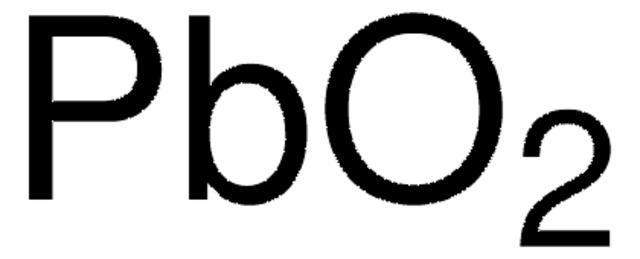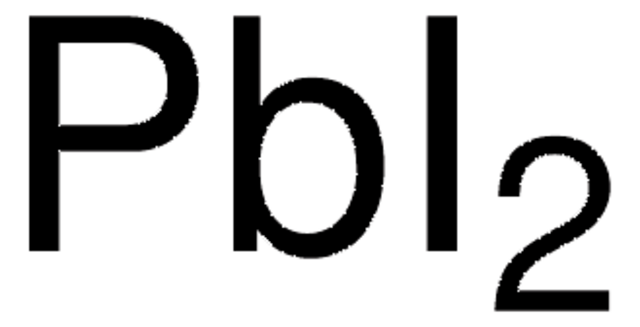254258
Lead(II) sulfate
99.995% trace metals basis
Synonym(s):
Anglesite
About This Item
Recommended Products
Quality Level
Assay
99.995% trace metals basis
form
powder and chunks
reaction suitability
reagent type: catalyst
core: lead
impurities
≤55.0 ppm Trace Metal Analysis
density
6.2 g/mL at 25 °C (lit.)
SMILES string
[PbH2++].[O-]S([O-])(=O)=O
InChI
1S/H2O4S.Pb/c1-5(2,3)4;/h(H2,1,2,3,4);/q;+2/p-2
InChI key
KEQXNNJHMWSZHK-UHFFFAOYSA-L
Looking for similar products? Visit Product Comparison Guide
Application
- Lead(II) sulfate uses.: Widely recognized for its role in lead-acid battery technology, Lead(II) sulfate is pivotal in the production of battery plates. It contributes to the battery′s ability to store and release energy efficiently, which is critical in automotive and renewable energy storage applications (DOI: 10.1039/d3ra04386j).
Signal Word
Danger
Hazard Statements
Precautionary Statements
Hazard Classifications
Acute Tox. 4 Inhalation - Acute Tox. 4 Oral - Aquatic Acute 1 - Aquatic Chronic 1 - Repr. 1A - STOT RE 2
Storage Class Code
6.1C - Combustible acute toxic Cat.3 / toxic compounds or compounds which causing chronic effects
WGK
WGK 3
Flash Point(F)
Not applicable
Flash Point(C)
Not applicable
Personal Protective Equipment
Choose from one of the most recent versions:
Already Own This Product?
Find documentation for the products that you have recently purchased in the Document Library.
Customers Also Viewed
Articles
Dye-sensitized solar cells as a promising, low-cost photovoltaic technology.
Colloidal quantum dots (CQDs) are semiconducting crystals of only a few nanometers (ca. 2–12 nm) coated with ligand/surfactant molecules to help prevent agglomeration.
Our team of scientists has experience in all areas of research including Life Science, Material Science, Chemical Synthesis, Chromatography, Analytical and many others.
Contact Technical Service















